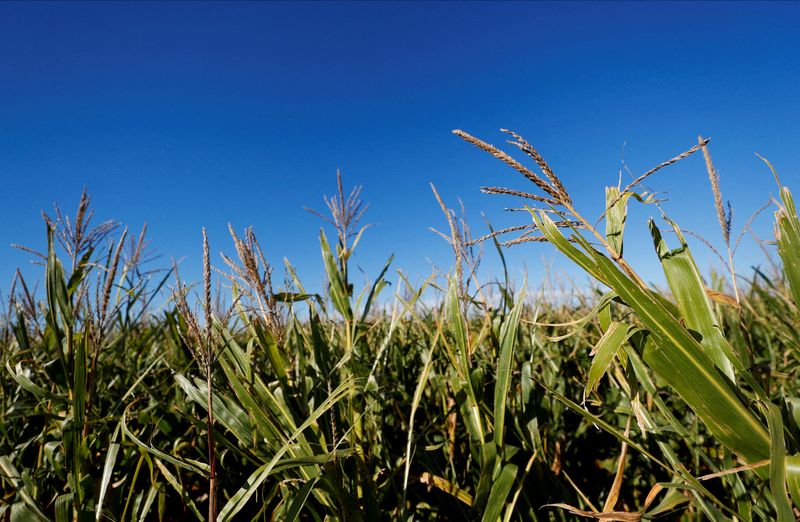BUENOS AIRES (Reuters) – Argentina’s key agricultural regions will receive rain and a drop in temperatures in the coming days, the Buenos Aires grain exchange said on Wednesday, a combination expected to help curb the spread of an insect that has damaged the country’s corn lots.
Argentina is the world’s third-largest exporter of corn, but the crop’s current season is being affected by an unusual boom in leafhoppers, an insect that spreads the corn stunt disease spiroplasma.
Leafhoppers, which are smaller than grasshoppers, thrive in dry, warm-weather conditions.
“Most of the agricultural area will see moderate to heavy rainfall (25 to 75 millimeters)” over the next seven days, the grains exchange said in its weekly crop report.
“Along with the (rain) front, southerly winds will arrive, producing below-normal minimum temperatures in most of the agricultural area,” the report added.

Argentina is in the first weeks of the austral autumn.
The country’s agricultural producers have recently started harvesting the 2023/24 soybean and corn crops. The expected rains are also forecast to benefit planting of 2024/25 wheat, which starts in the second half of May.

